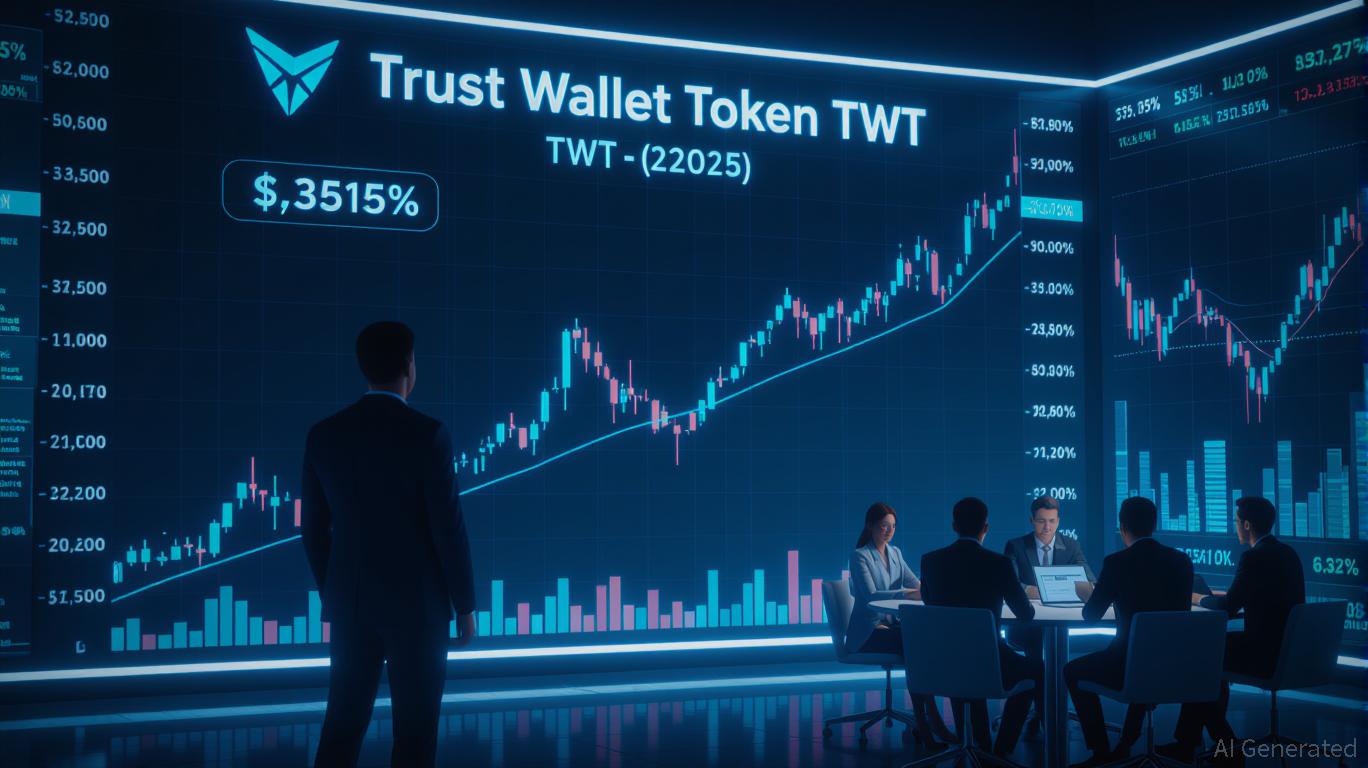Brazil Fights Cryptocurrency Crime Through Licensing Requirements and Pre-Trial Asset Liquidation
- Brazil introduces crypto licensing rules and pre-trial seizure laws to combat crime and regulate its $319B market. - New framework requires VASPs to secure $2M-$17.8M capital, comply with AML/cybersecurity standards, and report stablecoin transactions. - "Anti-faction bill" enables authorities to liquidate seized crypto during investigations, targeting gangs like Comando Vermelho. - Critics warn strict rules may stifle small firms, while regulators defend alignment with traditional finance standards.
Brazil's central bank and government are moving forward with a twofold strategy to tackle organized crime and bring oversight to its rapidly expanding crypto industry. New regulations will require crypto businesses to be licensed, and a legislative proposal would allow authorities to sell confiscated digital assets before trials conclude. These initiatives are designed to counter the increasing use of cryptocurrencies for illegal purposes and to establish Brazil as a regulatory frontrunner in Latin America.
The central bank’s updated regulatory structure, which takes effect in February 2026, will require all virtual asset service providers (VASPs)—such as exchanges, custodians, and brokers—to obtain official approval by November 2026, as

This regulatory initiative is part of Brazil’s larger plan to weave crypto into its financial landscape. With a crypto market valued at $319 billion—representing nearly a third of Latin America’s total—the government has stressed the importance of fighting fraud and money laundering, as mentioned in the
Alongside these regulatory changes, President Luiz Inácio Lula da Silva has put forward the "anti-faction bill," which would let authorities liquidate seized cryptocurrencies during criminal probes, treating them similarly to foreign currency or securities, as
Some critics believe the short compliance window and steep capital requirements could hinder competition, especially for smaller players, as noted in the
Together, these regulatory and legislative efforts demonstrate Brazil’s ambition to take the lead in digital asset regulation. By bringing crypto under foreign exchange rules and enabling prompt liquidation of seized assets, the country seeks to stem illegal financial flows and promote a transparent market. Nonetheless, challenges persist, such as guaranteeing fair valuation of confiscated crypto and safeguarding defendants’ rights in the event of acquittal, as mentioned in the
Disclaimer: The content of this article solely reflects the author's opinion and does not represent the platform in any capacity. This article is not intended to serve as a reference for making investment decisions.
You may also like
Meme Coin Surge: 312% Gains or Just a Passing Craze?
- A PEPE wallet address (0x2dc) liquidated its 2-year position, securing a $658,000 profit (312% ROI) via Binance. - The sale reflects a meme coin market resurgence, with PEPE futures open interest rising 3% to $200.53M. - Binance’s role in facilitating liquidity highlights growing institutional support for niche crypto assets. - High returns rely on patient capital and favorable conditions, raising sustainability concerns amid market volatility.

Ethereum Updates Today: Is the Crypto Market’s Deleveraging Signaling an Imminent Rebound or an Extended Slump?
- Crypto markets face deleveraging with 21% drop in futures open interest, signaling potential market reset per historical patterns. - Bitcoin and Ethereum rebound post-US government shutdown, driven by renewed institutional demand and reduced policy uncertainty. - Bitcoin ETFs see $523M inflows while Ethereum ETFs face $107M outflows, contrasting with whale accumulations of $350M in ETH. - Altcoins show mixed signals: XRP rebounds but faces technical resistance, while SUI stabilizes amid declining DeFi TV

Trust Wallet Token (TWT) Price Rally: Shifting Market Forces and Key Alliances Influence Near-Term Outlook
- Trust Wallet Token (TWT) surged to $1.60 in October 2025 driven by strategic innovations and expanded utility within the Trust Wallet ecosystem. - Key factors include 210M+ user growth, FlexGas discounts, multi-chain gas integration, and Trust Premium loyalty programs reducing token circulation. - Strategic partnerships with Onramper enabled 130+ local payment methods across 190 countries, boosting TWT's adoption in emerging markets like Indonesia and Nigeria. - Analysts project TWT could reach $5.13 in

BFF Bank's Measured Growth Compared to Amex GBT's Rapid AI-Powered Expansion: Contrasting Strategies for Advancement
- BFF Bank's stock rose 1.29% after 33% net profit growth and €5.8B loan expansion, with plans to enter French/Luxembourg markets. - Amex GBT reported 13% revenue growth ($674M) and 9% EBITDA increase ($128M), driven by CWT acquisition and travel demand surge. - BFF improved operational efficiency (46% cost-income ratio) while Amex raised 2025 guidance to $523M-$533M EBITDA and 12% revenue growth. - Divergent strategies emerged: BFF focused on organic expansion and risk management versus Amex's AI-driven t
